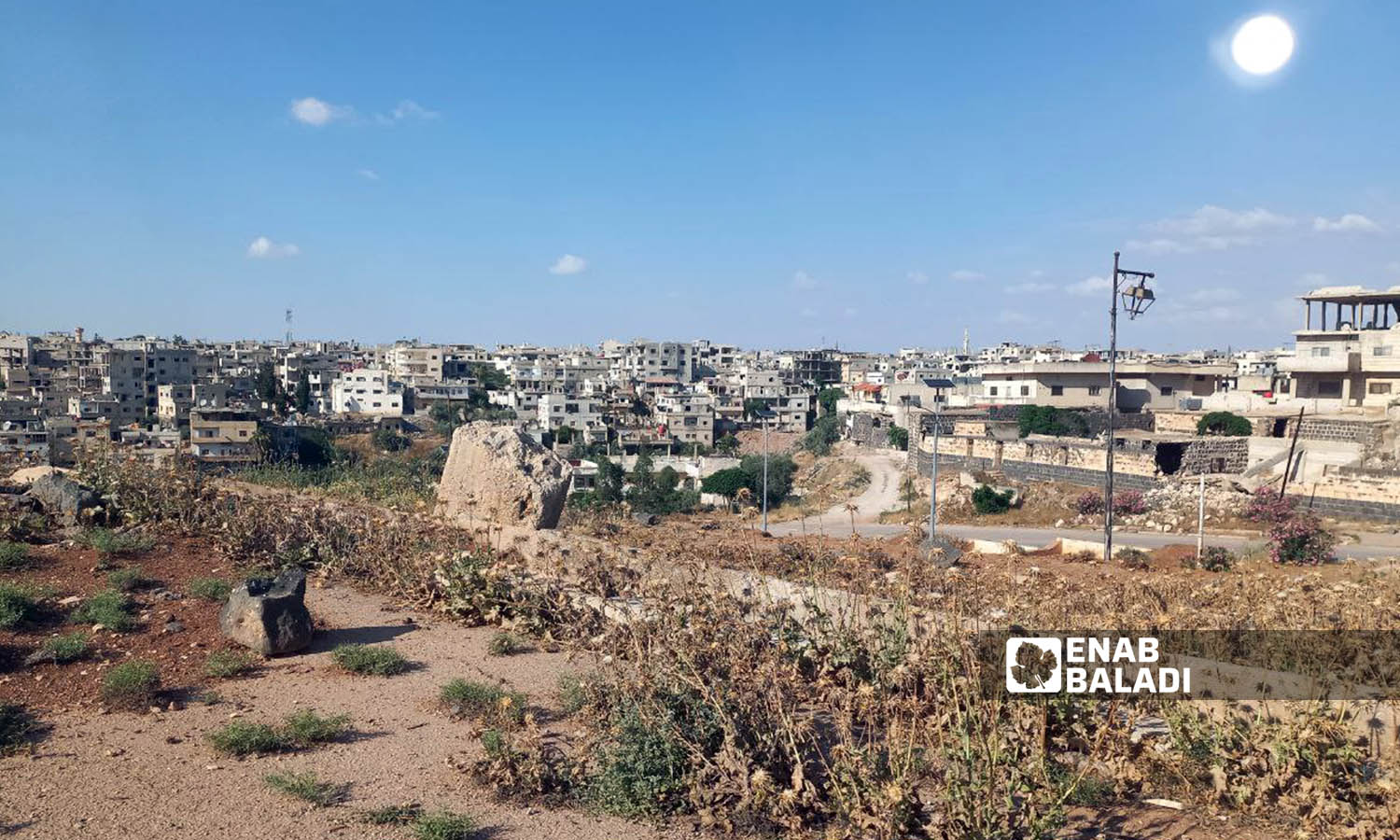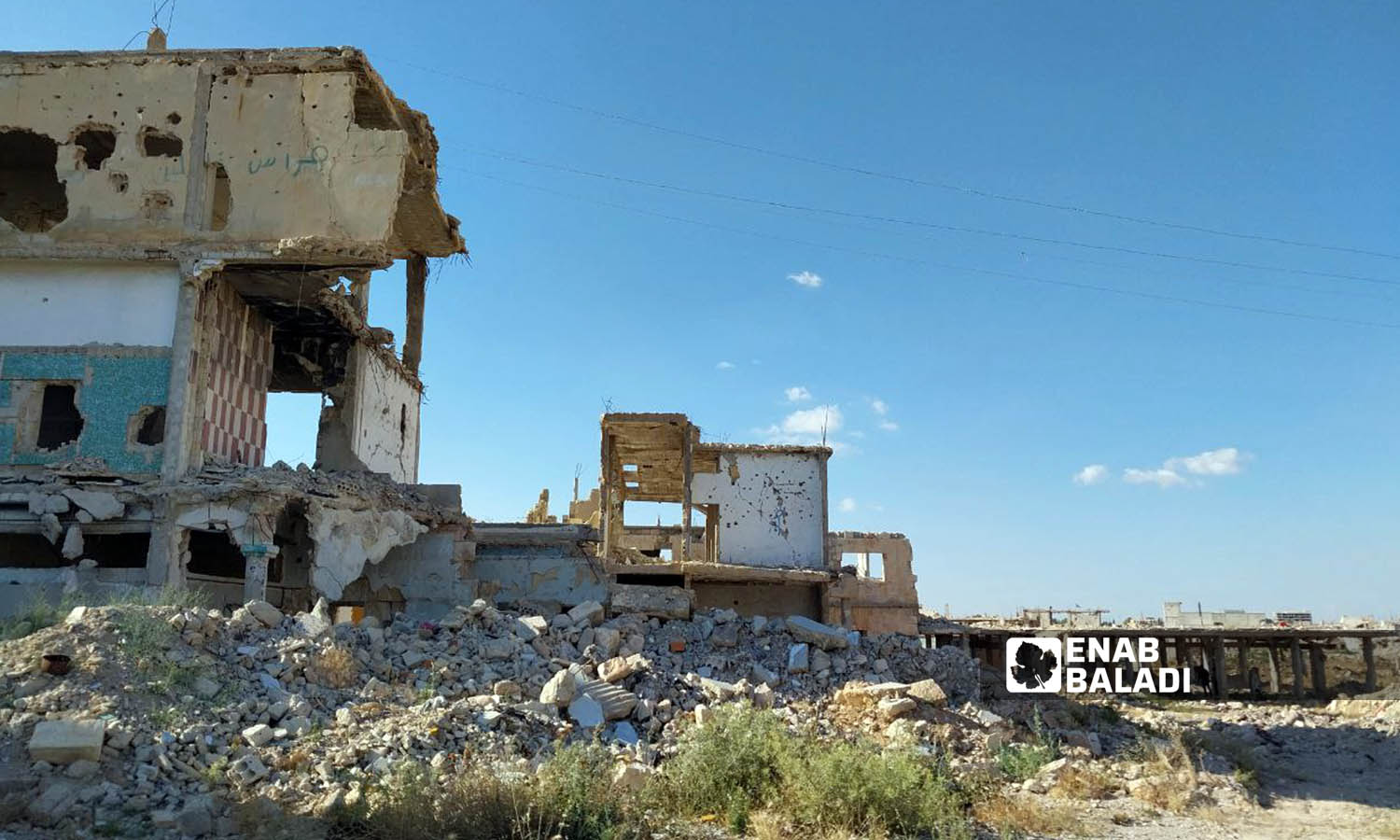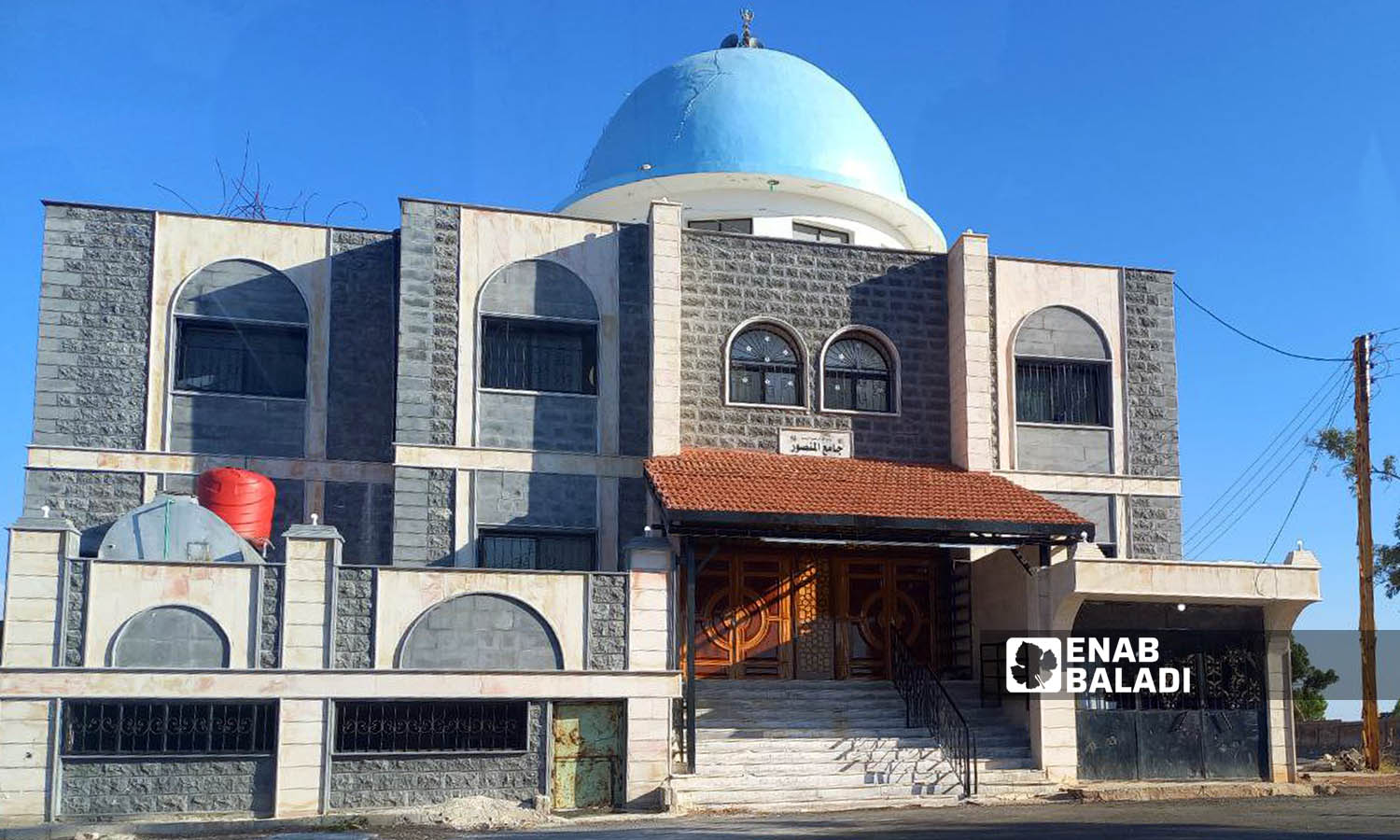



Enab Baladi – Sarah al-Ahmad
The neighborhoods of southern Daraa al-Balad city have endured the largest share of bombing and destruction since the start of the Syrian revolution in 2011.
The bombing of the regime forces on the neighborhoods of Daraa al-Balad that are located on a hill starting from al-Karak neighborhood to al-Bihar neighborhood has affected homes, schools, mosques, and infrastructure by 80% and nearly 40% of their residents were displaced to areas where housing, work and better services are available.
Following the Russian-brokered 2018 security settlement that was imposed on the opposition fighters in Daraa al-Balad by the Syrian regime, the residents began to restore some mosques, schools, and an automatic bakery to secure the minimum necessities of life, including bread.
The clashes resumed in July 2021, between local fighters from Daraa al-Balad and the regime’s Fourth Division led by the brother of the head of the Syrian regime, Maher al-Assad, in addition to Iranian and Iraqi forces, the Lebanese Hezbollah and the Palestinian al-Quds Brigade, to destroy what has been restored due to heavy bombing.
Moayad al-Masalmeh, an activist based in Daraa al-Balad, told Enab Baladi that the destruction cannot be easily restored, especially the houses and residential buildings.
In the al-Manshiya neighborhood, al-Bihar neighborhood, and al-Karak neighborhood, the scale of destruction reaches 90%, and in the al-Arbaeen neighborhood, 50%, and the percentage of destruction varies in the rest of the neighborhoods.
Residential buildings need complete removal and rebuilding, which requires large sums of money that cannot be saved in these difficult living conditions, and even the remittances of expatriates cannot cover the costs.

Buildings destroyed by shelling and clashes in al-Manshiya neighborhood in Daraa al-Balad – May 31, 2023 (Enab Baladi/Sarah al-Ahmad)
Most of the mosques in Daraa al-Balad were subjected to heavy bombardment, as was the case with most mosques and places of worship in Syria.
Sheikh Issam al-Sayasneh, one of the prominent clerics of Daraa al-Balad, said that the people were able to restore Bilal Mosque, al-Mansur Mosque, Abu Bakr Mosque, al-Hamza and al-Abbas Mosque, and al-Manshiya Mosque and work will begin to rebuild the minaret of the al-Omari Mosque in a few days.
Al-Sayasneh told Enab Baladi that all that was restored was through local efforts.
Amal al-Abazid, a school principal in Daraa al-Balad, told Enab Baladi that 13 schools had been restored, the majority of which are primary and preparatory schools, and that there are still 15 schools in need of restoration.
Al-Abazid added that schools suffer from a shortage of educational staff and school supplies, which prompts parents to send their children to Daraa al-Mahatta schools, and their living burdens increase.
The cost of transportation from Daraa al-Balad to Daraa al-Mahatta reaches 2000 SYP per person, back and forth.

Al-Mansour Mosque after reconstruction in Daraa al-Balad – May 31, 2023 (Enab Baladi/Sarah al-Ahmad)
The poverty and unemployment within the neighborhoods of Daraa al-Balad have reached 70%, according to local activists, in light of the great destruction of all services, infrastructure, and markets.
Some residents of Daraa al-Balad resort to work in Daraa al-Mahatta, which also suffers from the destruction of a large part of its markets and shops, but the restoration works remain more than in the neighboring district.
The markets are witnessing a hike in the prices of most commodities and materials, which are not commensurate with the income of the people and put them in front of choosing the family’s basic needs according to priority, as is the case across Syria.
Hammam al-Abazid, a car driver in Daraa al-Balad, told Enab Baladi that he owned three textile shops before the start of the revolution, and all of them were destroyed by the bombing of the regime forces.
He added that he is currently working as a taxi driver in the neighborhoods of Daraa al-Balad, pointing out that the cost of fuel has increased the delivery fee to 6000 SYP, such a fare which is not commensurate with the hard living conditions.
Popular jobs in Daraa al-Balad are limited to taxi or minibus drivers, filling perfumes, repairing machinery, and other jobs whose income is not commensurate with the high cost.
The Syrian Arab Red Crescent (SARC) teams were responsible for distributing food rations to Daraa governorate after the regime took control of southern Syria in July 2018, while some areas are deprived of rations due to the positions of their residents who adhere to the opposition of the Syrian regime.
SARC is known as the relief arm of the Syrian regime, and it is headed by Khaled Hboubati, who is close to the regime and one of those calling for the lifting of Western sanctions on it.
Families in Daraa al-Balad receive food aid (baskets) every three months, but since last March, the Red Crescent stipulated that the beneficiaries of the food basket provided by the World Food Programme (WFP) must visit its office in the regime-controlled al-Sabil neighborhood in Daraa al-Mahatta, such a condition pushed many families to give up aid for fear of arrest.
The Syrian Red Crescent officials claim that there is corruption in the distribution of aid, which prompts it to limit the beneficiary names to its central offices only.
if you think the article contain wrong information or you have additional details Send Correction